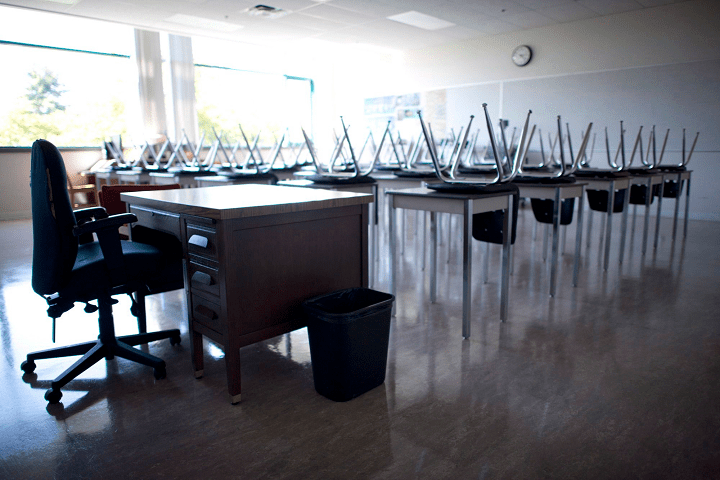The Ontario Secondary School Teachers’ Federation (OSSTF/FEESO) says it will recommended to its union members that they enter into a proposal to “resolve bargaining” with the Ontario government.

The union said bargaining unit presidents and chief negotiators “voted overwhelmingly” in favour of the recommendation at a special meeting on Friday.
The process, according to the union, could including binding interest arbitration.
“The proposal is not a tentative agreement but establishes a clear pathway forward for this round of bargaining,” OSSTF/FEESO said in a press release Friday.
The union said it will now begin preparations for an internal membership vote that will take place through September.
Members — approximately 60,000 education workers and high school teachers — across the province will vote on whether they want to enter into the proposal, the union said.
OSSTF/FEESO President Karen Littlewood said Friday represented a “critical point in this round of bargaining.”

Get breaking National news
“Since beginning bargaining 13 months ago, OSSTF/FEESO has been fighting to improve the learning and working conditions in Ontario’s schools but the Ford government and school boards have refused to be a fair partner in these negotiation,” Littlewood said in a statement. “This process is not a tentative agreement but it does promise to break any impasse by bringing in a third party arbitrator to seek a fair and just resolution.”
The union said if OSSTF/FEESO members vote in favour of the proposal to resolve bargaining, central bargaining will continue until Oct. 27.
“By which date any matters that have not yet been settled with go to arbitration,” the release read. “If the Membership votes no, the proposal will be dropped and bargaining will continue.”
According to the union, if it is accepted, the proposal means there will be no strikes or lockouts during this round of bargaining between OSSTF/FEESO.
“The proposal also guarantees that OSSTF/FEESO Members will receive a remedy for wages lost under Bill 124, the Ford government’s wage suppression legislation that unfairly targeted woman-dominated public sector workers,” the union said. “Members will receive the remedy without having to wait for the courts to decide on the constitutionality of Bill 124.”
In a statement Friday, Ontario’s education minister, Stephen Lecce said he is “pleased” that the government has reached a “tentative four-year-agreement with the Ontario Secondary School Teachers’ Federation on a process that, if ratified by union members, will keep students in class where they belong.”
“My ongoing commitment to Ontario families is to use every available tool and pursue every path that keeps students in school. Doing so will mean students are in classrooms learning what matters most: reading, writing and math skills.”
Lecce said if approved, the tentative agreement “provides for bargaining to continue without the threat of strikes. If a collective agreement cannot be reached by October 27, 2023, the parties will enter binding interest arbitration to resolve any outstanding issues.”
The four major teachers’ unions have been in bargaining with the government for more than a year and all have complained about the slow pace.
The OSSTF had told members in a recent memo that it was also planning strike votes in the fall, saying the government had shown little interest in substantive negotiations and a strong strike mandate would demonstrate a determination to get a fair deal.
-With files from The Canadian Press.








Comments
Want to discuss? Please read our Commenting Policy first.